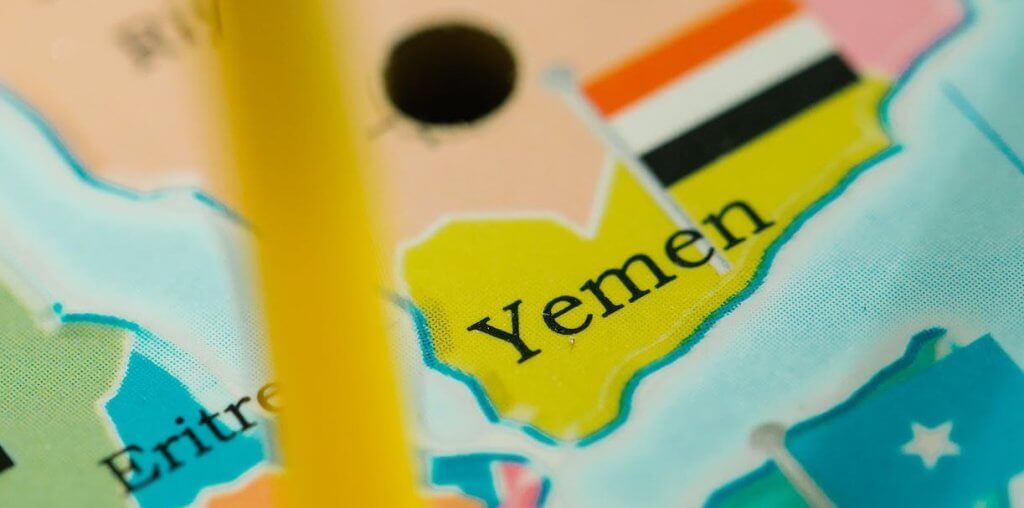This post is also available in:
English
From time to time we hear about missile launches or ship attacks perpetrated by the Iran-backed Houthis in Yemen. While the Houthis may be the lesser-known Iranian proxy, they pose a threat to international security and commerce, and they certainly should not be ignored.
Here is why:
In 2014 the Iranian-backed Houthis seized the Yemen capital Sanaa. Following their takeover, Saudi-backed forces intervened to restore the internationally recognized exiled government. This initiated a years-long proxy war between Saudi Arabia and Iran in Yemen, leading to widespread suffering in the world’s poorest Arab country, killing over 150,000 and creating a dire humanitarian crisis. In the past couple of years, the situation has somewhat stabilized, with both sides honoring a ceasefire that has technically expired with no permanent peace agreement in place. The unstable truce has created a volatile situation, and any small move may unleash a greater conflict throughout the region. This may explain why the US has not yet aggressively responded to Houthi aggression on US warships.
This begs the question, why is Yemen such an important player in the region and why do the Houthis hold so much power? The answer is that Yemen is located along the Bab al-Mandab straits, a major maritime trade route connecting the Mediterranean Sea and the Indian Ocean, containing the only entrance to the red sea towards the Suez Canal. Goods from the Gulf states and from Asia, including roughly one fifth of the world’s oil supply, travel through the Bab al-Mandab straits.
During the 2023 Israel-Hamas war the Houthis increased the amount of shot missiles and drones they shot toward ships passing by, including three commercial ships and a US warship that came to their aid, causing significant damage to at least one. These attacks constitute a very real threat to international commerce and can thugely impact the global trade market. Still, given the delicate balance of power in the area and the implications of destabilizing the region, the response toward Houthi attacks must be well thought out.
The Houthis claim that any ship traveling through to Israel is a legitimate target, but this is not just an Israel problem. These attacks influence international commerce and maritime security, including international shipping costs, as well as the potential ecological damage that would occur when an oil tanker is attacked.
So next time you hear about Houthi missiles, know that the Houthis represent a more complex geopolitical balance of power in the Middle East that requires a strong yet well-thought-out global response, developing and and adapting to the current events.
On This Topic 👁️
AP | Who are the Houthis and why hasn’t the US retaliated?
https://apnews.com/article/yemen-attacks-iran-ships-retaliation-15d10ed74c7f3cc7fd36fa0f77f73e54
AP | AP explains after three vessels were struck by missiles fired by Houthis rebels
Reuters | Great visual walkthrough of the world’s most strategic oil chokepoint
https://www.reuters.com/graphics/MIDEAST-ATTACKS-HORMUZ/0100B0B50N3/index.html
Times of Israel | Houthis vow to target all Israel-bound ships in Red Sea 🇮🇱☠️
https://www.timesofisrael.com/in-escalation-houthis-vow-to-target-all-israel-bound-ships-in-red-sea/

